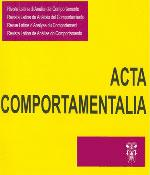Intervenção comportamental para dor e sono em mulheres com Fibromialgia
DOI:
https://doi.org/10.32870/ac.v27i3.70629Palabras clave:
behavioral intervention, fibromyalgia, chronic pain, quality of sleep, treatment comparison, component analysisResumen
Conducting studies of the effect analysis of behavioral intervention components is useful for clinical and applied research in Behavior Analysis. It allows to identify the impact of both component for the same group of individuals and increasing the efficacy and validity of treatment in future studies. Behavioral intervention components for pain and sleep management in people with fibromyalgia (FM) have been extensively tested in the literature, but it is unclear which is the best order of application for. Assessing this aspect may be important because, considering the bidirectional relationship between pain and sleep in people with Fibromyalgia, the application of one of the components may alter the effectiveness of the other, leading to the identification of which condition (pain or sleep) should be first treated. This study evaluated the effects of the order of application of two components in women with Fibromyalgia and poor sleeping quality, and the effect at the end of the intervention. The intervention consisted of 8 individual 90-minute encounters, that is, 4 for management of pain and 4 for management of sleep. The sample (n=8) was paired between two groups: the Group TS+TD started with the sleep component followed by the pain component and the Group TD+TS started with the pain component, followed by the sleep component. According to the results, the intervention was effective in both groups, but more consistent (lower variability of results among the participants and lower number of absences in sessions) in the Group TS+TD, so, an order effect was observed. Hypothesizes that a justification is the history of the complaints and demands of the women who sought the intervention. Although all participants reported poor sleeping quality, the main complaints were related to the experience with the painful process, making intervention in this theme a condition of greater establishing operation. When the intervention was directed to coping with the painful process, the reinforcing value seemed to be greater, and a reduction in the number of absences in sessions was also observed. The Sleep Diary seemed to be a reliable sleeping evaluation, that indicated positive and strong correlations with the Actigraph. This study stands out as embryonic in the area, which incites the possibility of further investigations
Descargas
Descargas
Publicado
Cómo citar
Número
Sección
Licencia

<a rel="license" href="http://creativecommons.org/licenses/by-nc-sa/4.0/"><img alt="Licencia de Creative Commons" style="border-width:0" src="https://i.creativecommons.org/l/by-nc-sa/4.0/88x31.png" /></a><br />Este obra está bajo una <a rel="license" href="http://creativecommons.org/licenses/by-nc-sa/4.0/">licencia de Creative Commons Reconocimiento-NoComercial-CompartirIgual 4.0 Internacional</a>.






